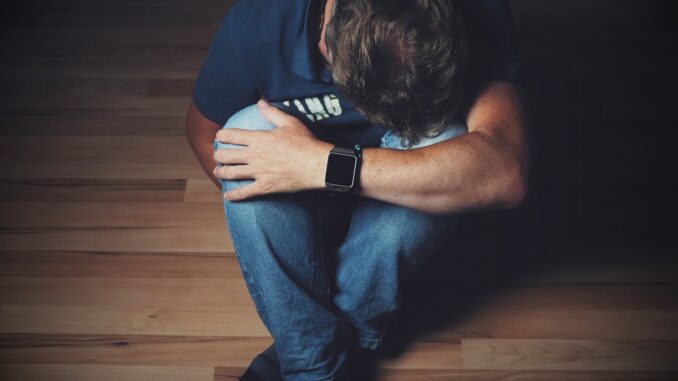
Depression is a global health issue affecting an estimated 280 million people worldwide, and men are often the least likely to seek help. Despite comparable rates of depression between genders, men are less likely to report symptoms and more likely to die by suicide. Cultural expectations, gender norms, and a reluctance to appear vulnerable contribute to a dangerous silence. Fortunately, mental health organisations, governments, and digital innovators have begun addressing these disparities through male-specific resources, services, and support structures that span both international and local contexts.
Understanding the Barriers
Men suffering from depression often face significant barriers to care. These include societal expectations of masculinity that discourage emotional expression, fear of judgement or ridicule, lack of mental health literacy, and in some regions, limited access to mental health services. This reluctance can lead to emotional suppression, self-medication through substance use, or destructive coping mechanisms that compound the problem.
According to research, men often present with symptoms such as irritability, anger, risk-taking, or emotional withdrawal rather than the classic indicators of sadness or hopelessness. As a result, depression in men may be misdiagnosed or dismissed altogether. To counter this, tailored outreach and intervention programs are essential.
Global Digital and Peer-Support Platforms
Several international organisations have built platforms specifically for men, offering online access to education, peer support, and crisis response. These programs serve as essential bridges, particularly for those who may not feel comfortable engaging in traditional therapy or who live in regions with fewer mental health professionals.
HeadsUpGuys
Website: headsupguys.org
Based in Canada but globally accessible, HeadsUpGuys is a male-focused mental health resource designed specifically to support men battling depression. It includes self-check tools, articles, tips for building mental resilience, and a therapist directory. Its tone and language are crafted to reduce stigma and speak directly to male users.
The ManKind Project
Website: mankindproject.org
Operating in over 20 countries, this organisation offers workshops, online men’s groups, and peer support focused on emotional health, integrity, and accountability. It encourages men to connect in non-judgemental spaces to process emotional challenges and trauma.
7 Cups
Website: 7cups.com
An anonymous chat platform with trained listeners and professional therapists available globally. Men who prefer not to speak face-to-face about emotional issues can find a safe outlet here.
TalkLife
Website: talklife.co
A social platform for those struggling with depression and other mental health concerns. TalkLife includes discussion forums and live chat, fostering peer-to-peer support in real-time.
Crisis Support Lines (Global and Regional)
When depression becomes acute or suicidal thoughts emerge, timely access to trained professionals is critical. The following helplines offer immediate support in multiple countries:
- Befrienders Worldwide
Website: befrienders.org
An umbrella organisation for emotional support helplines across 30+ countries. - Crisis Text Line
- US & Canada: Text HOME to 741741
- UK: Text SHOUT to 85258
- Ireland: Text HELLO to 50808
All services are free, confidential, and operate 24/7.
- Lifeline International
Website: lifelineinternational.org
A global suicide prevention network offering access to national helplines and support services.
Australian Resources for Men Facing Depression
Australia has made significant progress in recognising and addressing men’s mental health. The following organisations provide support specifically for Australian men:
Lifeline Australia
Website: lifeline.org.au
Phone: 13 11 14 (24/7 crisis support)
Lifeline is Australia’s leading suicide prevention and mental health support organisation. It offers phone counselling, text chat services, and community programs.
Beyond Blue
Website: beyondblue.org.au
Beyond Blue provides national support services and extensive mental health education. Its dedicated section for men addresses unique pressures they face and offers coping strategies, personal stories, and connections to services.
MensLine Australia
Website: mensline.org.au
Phone: 1300 78 99 78
A free telephone and online counselling service for men. MensLine specialises in issues including depression, anger management, relationship breakdown, fatherhood, and family violence. It also offers video counselling and online chat.
The Shed Online (now transitioned to other platforms)
Originally designed as a virtual version of a Men’s Shed, this program has been absorbed into broader health campaigns and community-based Men’s Sheds across Australia. These provide social and emotional support through hands-on, practical projects in shared workshop spaces.
Movember Australia
Website: au.movember.com
While best known for its moustache campaign, Movember funds numerous mental health projects focusing on early intervention, peer support, and men’s suicide prevention.
Books, Media and Cultural Narratives
Reading material and media designed to speak directly to male audiences can also play an important role in personal healing and awareness-raising.
- I Don’t Want to Talk About It by Terrence Real is widely regarded as a seminal work on male depression, exploring the hidden ways it manifests and how men can heal.
- The Mask of Masculinity by Lewis Howes deconstructs the societal pressures that prevent men from being vulnerable and accessing emotional care.
- Lost Connections by Johann Hari argues that depression has social, not just chemical, roots — a message that resonates strongly with isolated or disconnected men.
In Australia, television campaigns such as “Man Up” (ABC) and programs like “You Can Talk” continue to raise awareness around suicide prevention and open dialogue for men struggling with emotional health.
Whether through digital platforms, peer-led support, national helplines, or community-based initiatives, men now have access to a growing network of resources.
Men must be reminded — consistently and compassionately — that seeking help is a sign of strength, not weakness. Silence is not strength. Speaking up can save lives — and it often starts with a single conversation.
